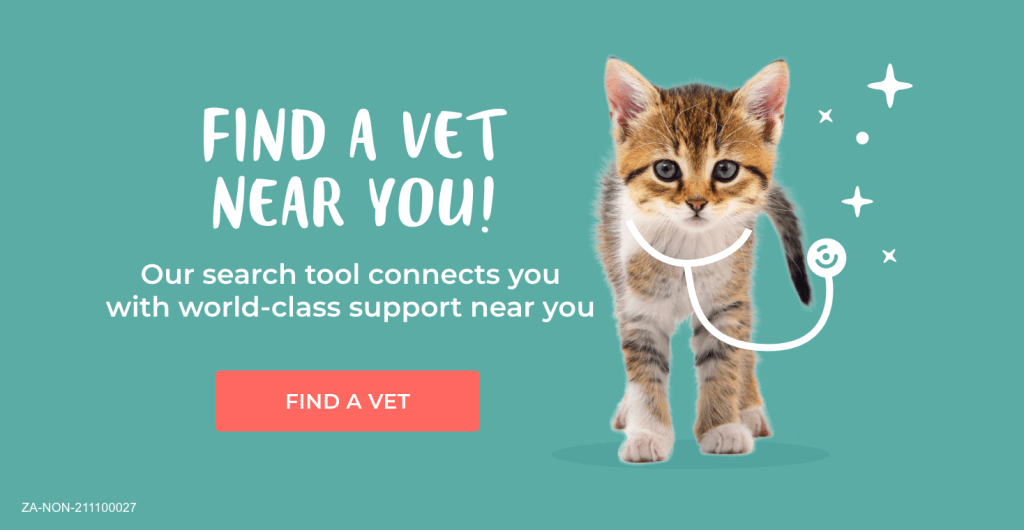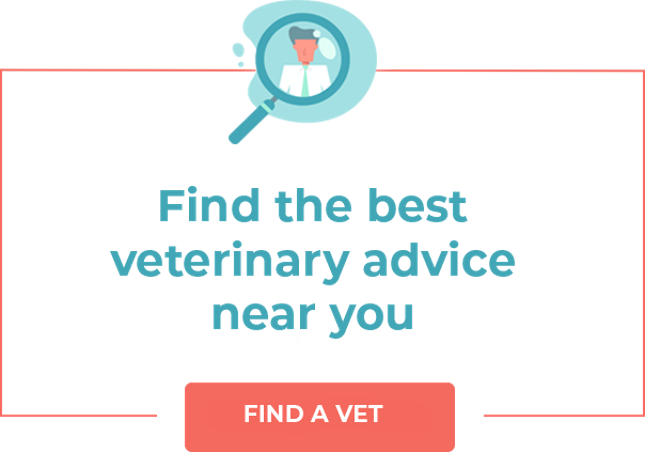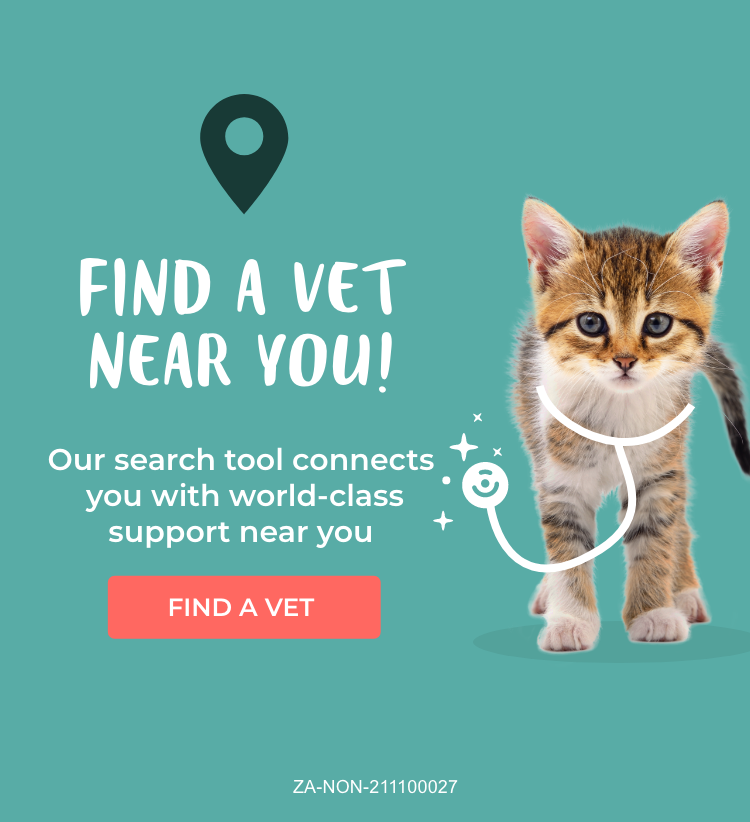Human Foods You Should Never Feed Your Cat
HEALTH & PROTECTION
16 Dec, 2020
READ 7 minutes
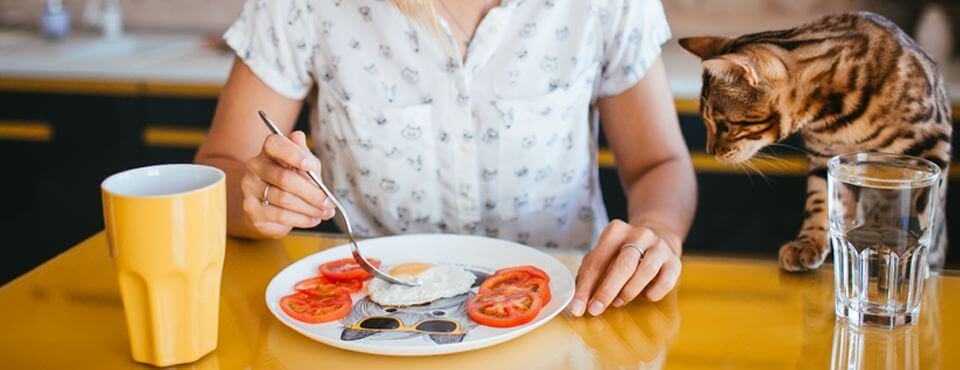
FOODS TOXIC TO CATS
Unlike dogs, cats don’t have a reputation for scarfing down birthday cakes or unattended chicken dinners. You might think your feline friend has no appetite for human food at all and it may seem far-fetched to imagine your cat begging for a chocolate bar or a sip of an alcoholic beverage. But you may also be tempted to give your cat a bite of human food on occasion, as a treat, and before you do, you should know that in some cases, even a mouthful can make your cat very ill. There are many human foods that are toxic for cats to eat.
Any food not specifically designed for cats can affect the digestive system, and may cause tummy upsets (like vomiting and diarrhoea) or even worse.
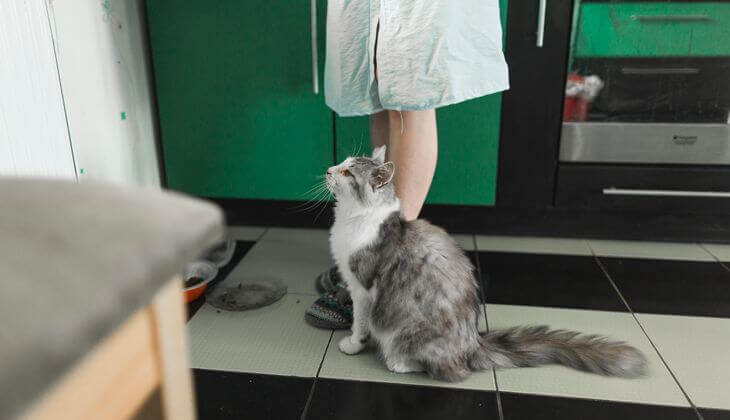
The following are foods that you should keep away from your kitty.
- Dairy. There is not much more quintessentially feline than the image of a kitten lapping up milk from a saucer, but in reality the majority of cats are lactose intolerant! Because these cats do not possess significant amounts of lactase – the enzyme that breaks down the sugar lactose in milk – any milk-based product can lead to diarrhoea or other digestive upsets.
- Onions and Garlic. Foods such as onions, garlic, shallots and chives contain thiosulphate, a compound that can cause serious problems for your cat. If your cat eats enough of it, the thiosulphate causes destruction of red blood cells, a devastating condition called haemolytic anaemia. For the most part, your cat probably won’t seek out bits of onion or garlic, but they might take a few nibbles of your dinner that contains onion, garlic or both. And, you may give it to them inadvertently in chicken or broths that you might add to their food. Typically, it’s OK to give your cat a bit of chicken or broth, but just make sure it doesn’t include onions or garlic (or too much salt).
- Alcohol. Remember that cats are relatively small, so even little amounts of alcohol can cause a host of problems if your cat manages to take a drink. These issues range from digestive upsets to breathing difficulty, disorientation, coma and even death. Be sure not to leave drinks unattended on coffee tables or anywhere within reach of your feline friend and clean any spills before your cat gets a chance to have a little taste. It really doesn’t take much more than a lick or two of alcohol to cause major issues in cats.
- Avocado. Avocado is high in fat and can cause digestive upsets and can increase the risk of pancreatitis in cats. In addition, the leaves, fruit and bark of avocados contain persin, which can cause serious problems in your cat.
- Chocolate, Coffee and some Soft Drinks. These products all contain methylxanthines (caffeine and related substances like theobromine),which are found naturally in cacao seeds, coffee beans and in a nut extract that is used in some sodas. In cats, methylxanthines can cause vomiting, diarrhoea, panting, excessive thirst and urination, hyperactivity, abnormal heart rhythm, tremors, seizures and even death. While plain or dark chocolate is the most dangerous, all varieties of chocolate (plain, milk and white) are dangerous to your cat.
- Dog food. An occasional bite of dog food will not hurt your cat, but a steady diet of dog food can cause your cat to be severely malnourished. Your cat needs to eat food that is specially formulated for his or her needs, which includes taurine, an amino acid that is essential for cats, which is found in animal-based protein. Taurine is essential for a normal healthy immune system, vision, heart muscle function and digestion in cats. Dog food does not contain enough taurine for cats.
- Grapes and Raisins. While the toxic substance within grapes and raisins is unknown, ingestion of these foods by your cat can lead to the development of kidney failure. The effects may be even more pronounced in elderly and sick animals.
- Potatoes and Tomatoes. Potatoes and tomatoes are members of the solanaceae family of plants. Raw potatoes (including potato peelings) and green tomatoes also contain solanine, a bitter, poisonous glycoalkaloid, which can cause vomiting and diarrhoea. The leaves and stems are particularly toxic. Cooked potato, sweet potato and ripe tomatoes do not contain solanine. Tomatoes in cat foods are ripe and should not cause concern because they are generally used in relatively small amounts.

- Liver and Cod Liver Oil. Eating too much organ meat, especially liver from any animal, or supplements containing high levels of cod liver oil, can cause vitamin A toxicity, a serious condition that can affect your cat’s joints and bones. Signs include stiffness and immobility of joints, pain and discomfort and there may even be deformed bones and fractures as well as gastrointestinal signs.
- Macadamia Nuts. These nuts are commonly used in many cookies and candies and they can cause significant problems for your feline friend. Lethargy, vomiting, increased body temperature (hyperthermia) and tremors are the initial signs that can progress to ataxia or hind-limb paresis.
- Raw/Undercooked Meat, Eggs and Bones. Raw meat and raw eggs can contain bacteria such as Salmonella and Escherichia coli ( coli) that are harmful to cats. Additionally, raw eggs contain an enzyme called avidin that decreases the absorption of biotin (a B vitamin), which can lead to skin and coat problems. Feeding your pet raw bones may seem like a natural and healthy option, however, it can be very dangerous for your cat. Your cat could choke on bones or sustain a grave injury should the bone splinter and become lodged in or puncture your cat’s digestive tract.
- Salt. Large amounts of salt can produce excessive thirst and urination, or even sodium poisoning in cats. Signs that your cat may have eaten too much salt include vomiting, diarrhoea, depression, tremors, elevated body temperature, seizures, and even death.
- Xylitol and Sugary foods. Used as a sweetener in many products including gum, sweets, baked goods and toothpaste, xylitol can cause a release of insulin which causes blood sugar levels to drop and can also cause vomiting, fatigue, loss of coordination, and eventually liver failure. Signs include vomiting, lethargy or fatigue and loss of coordination. These maladies progress rapidly (within a few days) to liver failure. Sugary foods are also not good for cats and can lead to dental problems, obesity and diabetes.
- Citrus. The stems, leaves, peels, fruit and seeds of citrus plants contain varying amounts of citric acid, essential oils that can cause irritation and possibly affect your kitty’s central nervous system, if ingested in significant amounts. Small doses are not likely to present significant problems beyond minor stomach upset.
- Yeast: Yeast in dough can expand and produce gas in the digestive tract leading to pain due to distension of the stomach and intestines, which could rupture. and a possible rupture of the stomach or intestines. Additionally, as dough rises alcohol is produced which can be toxic to your cat.
- Non-food items: Foreign objects such as toys, soft rubber objects, string (including thread, yarn and tinsel), coins, and medicine also pose a risk to cats if ingested. A number of common over the counter medicines (including aspirin and acetaminophen or paracetamol and ibuprofen-containing medications) are dangerous for cats.
If you suspect your cat has eaten anything that may be dangerous or poisonous, try to determine what your cat may have ingested and how much. In some cases, small quantities may not cause a significant problem, but larger amounts may require immediate treatment. It is always best to consult your cat’s veterinarian for advice. If it is after hours, get in touch with your nearest emergency veterinary clinic.
